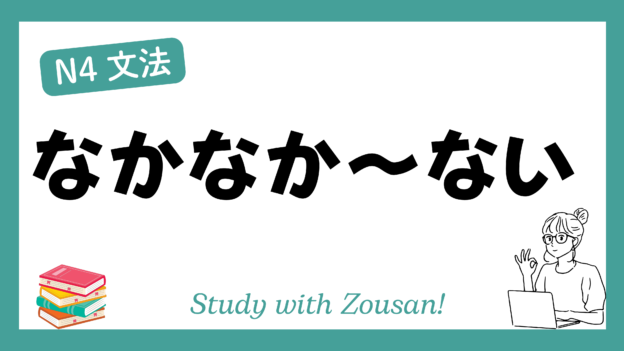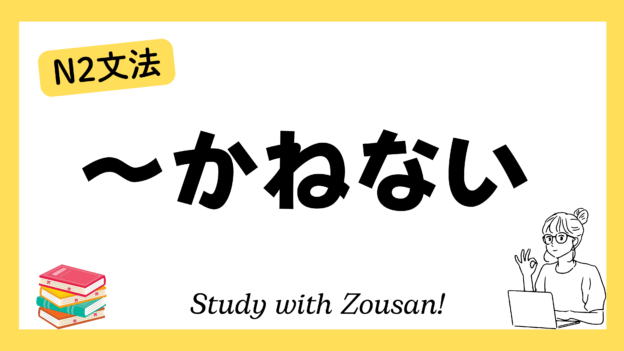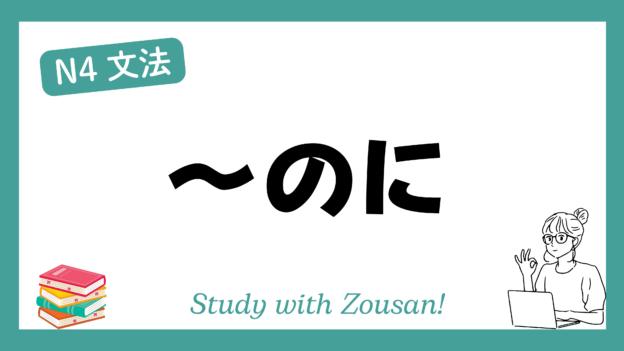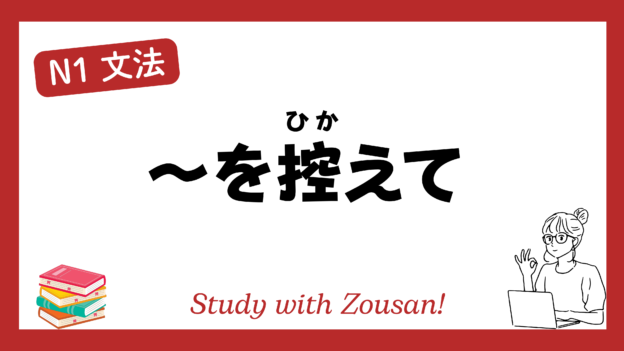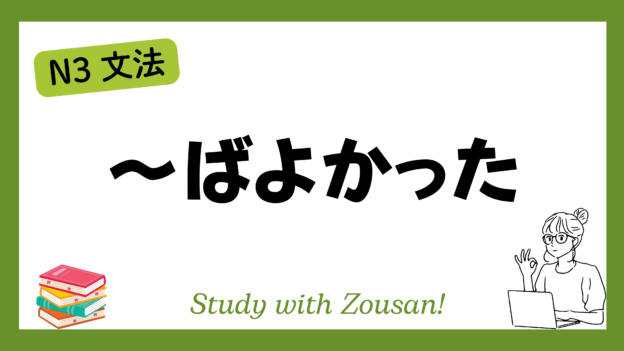N4文法:なかなか~ない
Meaning: “Not easily…” / “Hardly…” / “Struggling to…”
なかなか~ない is used to express difficulty in achieving something or completing an action, even after making an effort. This structure emphasizes that the expected outcome is hard to reach or takes longer than anticipated.
※Note:
・なかなか is usually followed by a verb in the negative form to emphasize the difficulty or delay in completing the action.
・This structure is only used when there is an expectation or effort to achieve something, but it does not succeed.
・なかなか~ない is not used for things that happen easily or without effort.
Structure:
| なかなか + Verb (negative form) |
Example:
-
-
-
🌟 日本語がなかなか上手にならない。
(にほんご が なかなか じょうず に ならない)
My Japanese is not improving easily. -
🌟 仕事がなかなか終わらない。
(しごと が なかなか おわらない)
The work is hardly finishing. -
🌟 彼に連絡がなかなかつかない。
(かれ に れんらく が なかなか つかない)
I can hardly reach him. -
🌟 この問題がなかなか解けない。
(この もんだい が なかなか とけない)
I am struggling to solve this problem. -
🌟 彼女がなかなか来ない。
(かのじょ が なかなか こない)
She is taking a long time to come. -
🌟 薬を飲んでも、頭痛がなかなか治らない。
(くすり を のんでも、ずつう が なかなか なおらない)
Even after taking medicine, my headache is not going away. -
🌟 バスがなかなか来ない。
(バス が なかなか こない)
The bus is not coming easily. -
🌟 彼の話がなかなか理解できない。
(かれ の はなし が なかなか りかい できない)
I can hardly understand his story. -
🌟 暑くて、なかなか眠れない。
(あつくて、なかなか ねむれない)
It’s so hot that I can hardly sleep. -
🌟 この本がなかなか見つからない。
(この ほん が なかなか みつからない)
This book is hard to find.
-
-



